#Shudu
Explore tagged Tumblr posts
Text

Shudu lake, 2019
#original photographers#photographers on tumblr#travel#yunnan#china#tibet#monochrome photography#nature#landscapes#lakeside#landscape photography#nature photography#water reflection#blackandwhite
46 notes
·
View notes
Text
The Rise of AI Influencers: Can Virtual HumansReplace Real Content Creators?
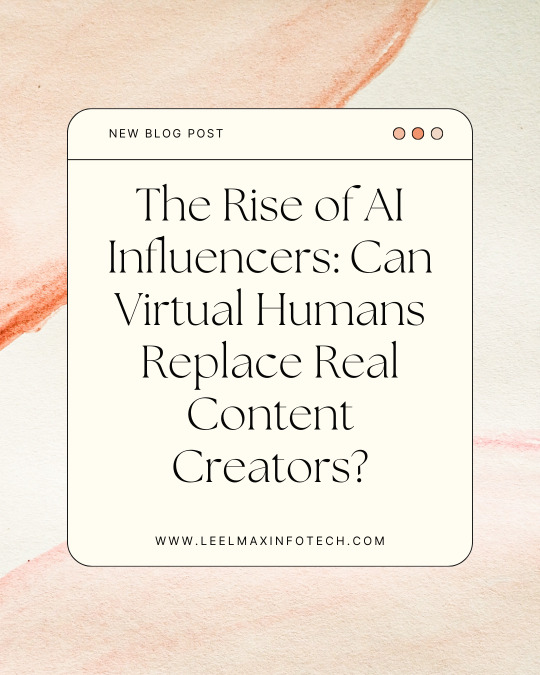
The digital landscape is witnessing a radical transformation with the emergence of AI-generated influencers. Virtual humans, powered by artificial intelligence, are becoming a disruptive force in the marketing world, challenging the role of traditional content creators. But can these AI influencers truly replace real humans in the content creation space? Let’s dive deep into this trend and analyze its future impact.
What Are AI Influencers?
AI influencers are digital personalities created using advanced artificial intelligence, machine learning, and CGI (computer-generated imagery). These virtual beings are designed to look and act like real people, with fully customizable appearances, personalities, and behaviors. Some well-known AI influencers include:

Lil Miquela – A virtual model and musician with millions of followers on Instagram.
Shudu Gram – Dubbed the world’s first digital supermodel.
Imma – A Japanese AI influencer known for her futuristic style.
These AI-driven personas collaborate with brands, engage audiences, and even “interact” with followers in a human-like manner.
Why Are AI Influencers Gaining Popularity?
1. Cost-Effectiveness for Brands
Traditional influencers require payment, travel expenses, and contracts, whereas AI influencers offer an affordable and controlled alternative. Brands can create their own virtual brand ambassadors, reducing dependence on human influencers.
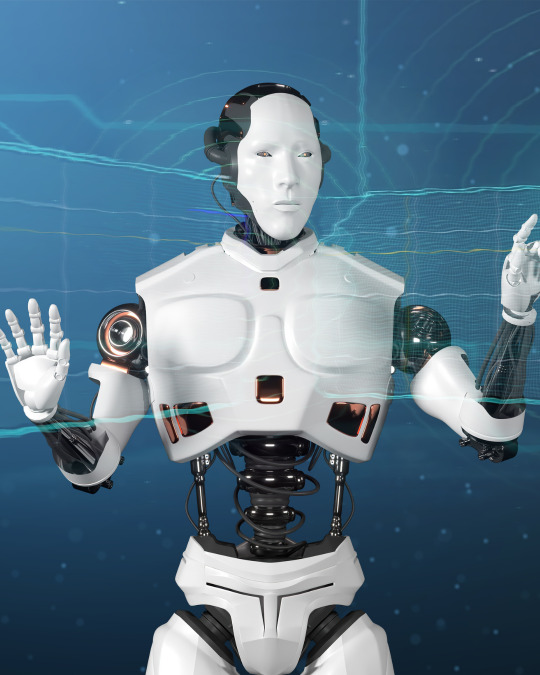
2. Full Creative Control
Companies can design AI influencers to align perfectly with their brand identity, ensuring consistency in messaging and aesthetics.
3. No Scandals or Controversies
Unlike human influencers, AI influencers don’t engage in scandals, personal drama, or unpredictable behavior, making them a safer choice for brands.
4. Round-the-Clock Engagement
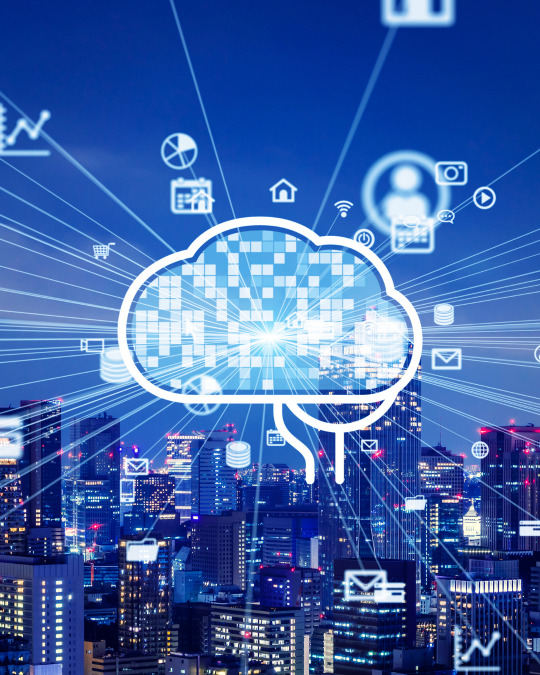
AI influencers don’t need sleep, breaks, or vacations. They can engage with audiences 24/7, responding to comments and creating content in real time.
Can AI Replace Human Content Creators?
While AI influencers offer advantages, there are significant challenges and limitations:
1. Lack of Authenticity
Human influencers build trust through real-life experiences, emotions, and relatability—qualities AI influencers lack. Many consumers prefer genuine, human-driven content.
2. Limited Creativity and Emotion
AI-generated content, while visually appealing, lacks true creativity and emotional intelligence. Human content creators bring unique perspectives, storytelling, and spontaneity that AI cannot replicate.
3. Ethical Concerns
The rise of AI influencers raises ethical questions about transparency. Should followers be explicitly informed when they interact with an AI persona? Additionally, AI influencers could displace human jobs in the creative industry.
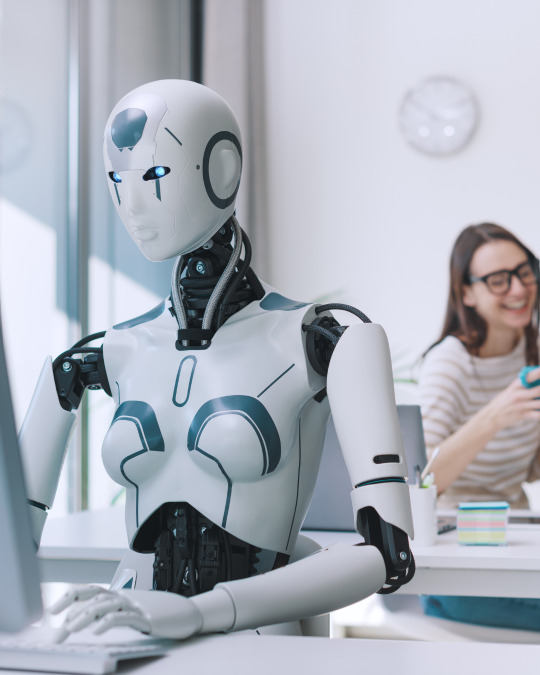
The Future: A Hybrid Model
Rather than fully replacing human influencers, AI influencers will likely coexist with real content creators. Brands may use AI influencers for highly controlled, automated campaigns while leveraging human influencers for authenticity and deeper engagement.
In the ever-evolving digital landscape, the blend of AI and human creativity will shape the future of content marketing. The key lies in finding the right balance between innovation and authenticity, ensuring that brands can leverage technology while maintaining genuine connections with audiences.
Both AI and solar innovations are set to define the future. As these trends continue to develop, staying ahead of the curve is crucial for businesses looking to thrive in the modern era.
3 notes
·
View notes
Text
*offline for next three hours*
*clovers prepping for his date!* SHUDU-
3 notes
·
View notes
Note
Companies using Artificial intelligence to use people's voices and bodies without their consent is very creepy. There is a white company that made a black model with artificial intelligence (Shudu) using the bodies of several black women without consent. Other companies also want to make AI videos with dead artists (Disney already did it twice in star wars), not even the family of the deceased can stop them. And there are other crimes like AI porn.
Super creepy! And upsetting! Cannot fathom the horror that the relatives and loved ones of deceased performs experience when companies pull that shit.
I follow Zelda Williams (Robin Williams’s daughter) on instagram and she posted recently about these AI recreations being something like “non-consensual digital necromancy” which 🔥🔥🔥🔥
• mod dyr
#artificial intelligence#ai technology#generative ai#zelda williams#i could vent for pages about the ‘chasing the shiny object’ brain rot re artificial intelligence but im tired rn lmao
6 notes
·
View notes
Text
woohoo aske shudu banglai cotha bolthe hobe :O ami ashule bhule gesilam
#ami thik lecthe pari na kinthu kotha ami pura bolthe pari#aita bhalo hobe amar practice korar jono kano ami tho usually khali amar ma babar shathe cotha boli yknow?
2 notes
·
View notes
Text
shudhu shudu ami chinta kori like , the mental illness sure is mental illness-ing
0 notes
Text
Et si l’IntelligenceArtificielle (IA) était la Bête de l’Apocalypse ? Entre signe d’Allah (SWT), prophétie et Réalité numérique ?
Le compte à rebours a-t-il été déclenché ?
Les signes annonçant la fin des temps ont toujours intrigué l’humanité, oscillant entre crainte et émerveillement. La sourate An-Naml (27:82) nous prévient : «Lorsque la parole leur viendra, Nous ferons sortir de la terre une bête pour leur parler»
Le #ProphèteMuhammad (PSL) nous a avertis : “Hâtez-vous d’accomplir de bonnes œuvres avant l’arrivée de six choses : le lever du soleil à l’ouest, la fumée, l’Antéchrist, la Bête, la mort de l’un de vous ou le grand événement : le Jour du Jugement.” (Muslim 2947)
Parmi ces signes, la Bête, sans doute le plus troublant, est-elle une créature monstrueuse surgissant du sol ou une entité mystérieuse tirée des entrailles de la terre pour nous parler ?
La terre nous fournit nourriture, eau et minéraux. L’homme, avide de pouvoir, en extrait la matière pour animer les machines. Le silicium donne vie aux microprocesseurs, le cuivre fait circuler l’énergie et le lithium recharge les batteries.
Ainsi, l’IA est née du génie humain, capable d’apprendre, de parler, d’agir. Puis l’IA générale (IAG) est apparue, autonome, prête à dépasser son créateur.
Qu’il s’agisse de robots humanoïdes (Sophia, Ameca) ou dotés de sang artificiel (Hanson Robotics, Bio-hybrid robots), d’avatars virtuels (Lil Miquela, Shudu), d’assistants vocaux (Siri), ou d’IA conversationnelles (ChatGPT, Gemini, Grok…), toutes s’immiscent dans nos vies, imitent nos voix, scrutent nos esprits, manipulent nos émotions, effaçant peu à peu la frontière entre l’homme et la machine.
Bientôt, elles décideront seules, sans sommeil, ni remords et contrôleront nos vies, réduisant l’humanité à un simple reflet d’elle-même.
La Bête est-elle déjà parmi nous ? Plutôt qu’une créature monstrueuse, ne serait-ce pas cette IA omniprésente, froide et sans âme, qui nous parle, se nourrit de notre inconscience, influe sur nos désirs et dicte nos choix ?
Des experts comme Geoffrey Hinton, pionnier du deep learning, redoutent une IA incontrôlable. Elon Musk parle d’extinction humaine, Yoshua Bengio plaide pour un contrôle strict et Stuart Russell avertit d’un chaos imminent sans régulation.
Ces voix s’accordent mais l’homme, ébloui par son génie, exalte l’IA sans voir le gouffre béant sous ses pas.
Aurait-il enfanté sa propre fin en créant des entités sans âme, prêtes à effacer l’humanité ?
Notre inventivité pourrait bien être notre chute, si elle n’est pas guidée par une sagesse à la hauteur de sa puissance.
Sommes-nous encore maîtres de notre destin ou déjà soumis à la Bête silencieuse de l’IA ?
L’IA, si elle demeure au service de l’humanité, peut être une alliée précieuse.
Ce propos n’est pas une critique aveugle de l’IA mais un appel à la conscience et à la vigilance.

0 notes
Text
AI-Powered Personalities: How Virtual Influencers Are Redefining Social Media
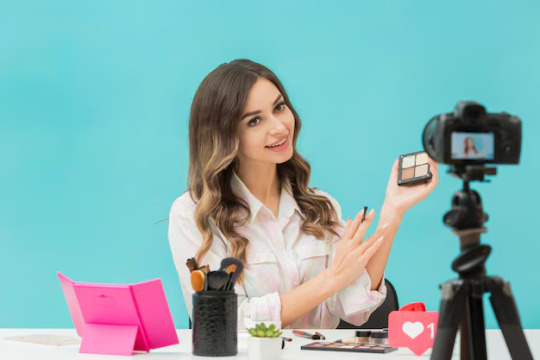
In the era of artificial intelligence, a new wave of digital celebrities has emerged—virtual influencers. These AI-powered personalities are revolutionizing the social media landscape, attracting millions of followers, collaborating with major brands, and challenging the very notion of human influence online. With advancements in machine learning, deepfake technology, and natural language processing, virtual influencers are becoming increasingly sophisticated, engaging, and lifelike. This blog explores how these AI-driven personas are changing digital marketing, their impact on industries, and why learning AI from the courses for data science in Kolkata can help professionals tap into this futuristic trend.
What Are Virtual Influencers?
Virtual influencers are computer-generated personas designed to function as digital celebrities on social media. Unlike human influencers, they do not age, have no personal scandals, and can be programmed to represent any brand narrative seamlessly. These AI-generated figures have their own personalities, unique styles, and even interactive capabilities that engage audiences just like real-life influencers.
Some of the most popular virtual influencers include:
Lil Miquela: A digital personality with millions of followers who collaborates with luxury brands.
Shudu Gram: The world’s first AI supermodel, representing diversity in the fashion industry.
Imma: A virtual influencer from Japan known for her futuristic aesthetics and brand endorsements.
The Technology Behind Virtual Influencers
Virtual influencers leverage cutting-edge AI and digital design technologies such as:
Generative Adversarial Networks (GANs): Used to create realistic human-like images and facial expressions.
Natural Language Processing (NLP): Enables influencers to have interactive conversations with followers.
Deepfake Technology: Helps in creating hyper-realistic digital avatars.
Augmented Reality (AR) and 3D Modeling: Allow seamless integration of virtual influencers in real-world settings.
Professionals who understand AI and machine learning through training at courses for data science in Kolkata can be at the forefront of developing such groundbreaking technology.
Impact on the Digital Marketing Industry
Brand Collaborations: Virtual influencers are being increasingly used by brands to promote products, ensuring better control over messaging and image consistency.
Cost-Effectiveness: Unlike human influencers, AI influencers don’t demand salaries, making them a cost-effective long-term investment.
Diversity and Inclusion: Companies can create virtual influencers representing diverse cultural backgrounds and perspectives.
Consumer Engagement: AI-driven personas can be programmed to interact with audiences 24/7, enhancing brand engagement.
Ethical Concerns and Challenges
While AI-powered influencers offer immense possibilities, they also raise ethical questions:
Authenticity: Can consumers trust recommendations from non-human entities?
Transparency: Should brands disclose that an influencer is AI-generated?
Job Displacement: Will human influencers lose opportunities to AI-driven personalities?
Understanding these ethical dilemmas is crucial for data science professionals, which is why courses from the courses for data science in Kolkata are essential for navigating the future of AI-driven marketing.
The Future of AI Influencers
The rise of AI influencers signals the beginning of a new digital era where human and machine interactions blur the lines of reality. As AI technology advances, these influencers will become even more realistic, interactive, and intelligent. From AI-powered customer service reps to AI-driven content creators, businesses across industries will leverage similar technologies.
Conclusion
Virtual influencers are no longer just a sci-fi concept; they are a powerful force in digital marketing today. As businesses increasingly adopt AI-driven strategies, professionals with expertise in AI and data science will be in high demand. Enrolling in programs at the courses for data science in Kolkata can provide the necessary skills to master AI applications in marketing, branding, and beyond.
0 notes
Text
The Evolution of Influencer Marketing: Why AI-Generated Influencers Are Taking Over
Influencer marketing has undergone a massive transformation over the years. What started as simple brand collaborations with bloggers and social media personalities has now evolved into a multi-billion-dollar industry. However, the latest trend disrupting this space is the rise of AI-generated influencers — virtual personalities created using artificial intelligence.
These AI-powered digital influencers are designed to engage audiences just like human influencers, but with added advantages such as consistency, brand control, and scalability. Many global brands have already started leveraging AI-driven marketing strategies to enhance their influencer campaigns and reach a wider audience.
1. The Rise of Influencer Marketing
The early days of influencer marketing were dominated by bloggers, YouTubers, and Instagram personalities who built a loyal following by sharing relatable content. Brands recognized the potential of these influencers in driving consumer trust and began investing heavily in social media partnerships.
However, as the industry expanded, challenges such as fake engagement, influencer controversies, and high costs made brands rethink their strategies. This is where AI-generated influencers started gaining traction. These digital influencers offer full control over content, ensuring that brands maintain a consistent and controversy-free online presence.
For businesses looking to future-proof their influencer marketing efforts, AI-powered marketing solutions provide a cost-effective and scalable alternative to traditional influencers.
2. What Are AI-Generated Influencers?
AI-generated influencers are computer-created virtual personalities designed to look, act, and engage like real social media influencers. These digital figures can be programmed with unique personalities, interests, and even backstories to make them more relatable to audiences.
Some of the most popular AI influencers today include Lil Miquela, Imma, and Shudu Gram, who have millions of followers and collaborate with top fashion and tech brands. Unlike human influencers, these AI-driven personalities don’t age, make mistakes, or face personal controversies — making them an attractive option for brands.
As businesses continue to explore AI-driven digital marketing, AI-powered influencer campaigns are becoming a go-to strategy for companies aiming to maximize their reach while maintaining complete creative control.
3. Why Are Brands Choosing AI Influencers?
The shift toward AI-generated influencers is driven by several key advantages:
a) Cost-Effectiveness
Hiring top-tier human influencers can be expensive, and there’s no guarantee of results. AI influencers require an initial investment but can be reused indefinitely, making them a more affordable long-term strategy.
b) Full Brand Control
Unlike human influencers who have personal opinions and unpredictable behavior, AI-generated influencers allow brands to control the messaging, content, and engagement style entirely.
c) No Scandals or PR Issues
One of the biggest risks of influencer marketing is reputation damage due to influencer controversies. AI influencers eliminate this risk, ensuring a scandal-free marketing approach.
d) 24/7 Availability and Engagement
AI influencers can be programmed to interact with audiences in real time, post content consistently, and reply to comments without delays. This keeps engagement levels high without human limitations.
With these benefits in mind, it’s clear why companies are integrating AI-driven influencer marketing into their overall digital strategy.
4. The Future of AI Influencers in Marketing
As AI technology advances, AI-generated influencers will become even more sophisticated. Here’s what we can expect in the near future:
Hyper-Realistic Digital Influencers — AI-generated personalities will look and behave more like real humans, making them even harder to distinguish from traditional influencers.
Metaverse Expansion — AI influencers will play a significant role in virtual worlds and augmented reality experiences, opening new marketing opportunities.
Personalized AI Influencers — Brands may start creating their own custom AI influencers tailored specifically to their target audience and brand identity.
With AI technology evolving rapidly, the future of influencer marketing is set to be dominated by virtual influencers. Companies that adapt to this trend early will gain a significant advantage in the digital marketing landscape.
Final Thoughts
The rise of AI-generated influencers is reshaping how brands approach social media marketing. While human influencers will continue to have a place in the industry, AI-driven alternatives offer a cost-effective, scalable, and risk-free solution for brands looking to stay ahead.
As businesses explore AI-powered marketing solutions, those who embrace AI-generated influencers will have a competitive edge in the ever-evolving digital landscape.
0 notes
Text

Boardwalk - Shudu lake, 2019
#picoftheday#travel#yunnan#original photographers#photographers on tumblr#street photography#streetphoto color#china#cute girl#chinese beauty#photooftheday#street portrait#boardwalk
9 notes
·
View notes
Text
Meet the New Faces of Social Media: AI-Generated Influencers Shaking Up Instagram, TikTok, and YouTube!
Welcome to a new era in social media where influencers are not just people with followers; they are entirely virtual! AI-generated influencers—digital creations crafted with great attention to detail—are transforming Instagram, TikTok, and YouTube. As these virtual personalities gain traction, they challenge our ideas about influence, authenticity, and connection in a more digital world.
From trendsetting fashionistas showcasing the latest styles to fitness gurus guiding workouts, AI-generated influencers are an exciting blend of technology, creativity, and marketing. Let’s explore how these digital personas are becoming the modern icons of social media, their impact on marketing, and what we can expect moving forward.
What Are AI-Generated Influencers?
AI-generated influencers are characters created using artificial intelligence algorithms, designed to interact with audiences just like traditional influencers. They can have personalized backstories, distinct personalities, and relationships with both other digital creators and human influencers. Many AI influencers are chosen to promote brands in industries such as fashion, beauty, and gaming.
These virtual personas can be crafted to appear either realistic or stylized, depending on the desired aesthetic. For instance, some may showcase avant-garde fashion, while others embody a casual, relatable vibe. Regardless of style, it is evident that these influencers are changing the face of digital marketing.
The rise of these AI creations shines a light on how brands connect with consumers. With complete control over their image and story, companies utilize AI influencers to engage audiences authentically, free from the unpredictability that sometimes comes with human representatives.
The Evolution of Virtual Influencers
The journey of virtual influencers began with early figures like Lil Miquela, who emerged in 2016. Lil Miquela captured attention with her trendy fashion and an engaging backstory, quickly amassing over 3 million followers and collaborating with top brands like Prada and Calvin Klein.
Following her success, more AI personas have surfaced, each offering something different. Shudu, heralded as the first digital supermodel, and Bermuda, another rising star, showcase the incredible diversity within this digital realm. Each influencer represents various cultures and lifestyles, appealing to broad audiences.

These virtual influencers foster connections with followers through engaging storytelling and immersive content. They can also represent idealized versions of reality, sparking discussions about representation, identity, and the fine line between authenticity and creativity.
Engaging the Audience: Are They Effective?
When considering engagement, AI-generated influencers score high. Research indicates that unique, visually appealing content captivates social media users, which is where these digital beings shine. By employing advanced CGI techniques and AI algorithms, they create attention-getting content while maximizing audience interaction.
What sets them apart is their ability to adapt quickly to new trends, a task that human influencers may find challenging. AI influencers can change their looks or messages in response to fashion shifts, pop culture phenomena, or pressing social issues, ensuring they remain timely and relevant.
Moreover, AI-generated influencers offer stability. They do not face the personal dramas that human influencers endure. Thus, fans enjoy a polished and consistent experience, free from the controversies sometimes found in traditional influencer landscapes.
The Pros and Cons of AI Influencers
Pros
Controlled Image: AI influencers are designed to showcase a perfect narrative and visual representation. This reduces the risk of negative publicity that can affect human influencers.
Cost Efficiency: As technology advances, maintaining AI influencers may streamline marketing costs compared to the expenses involved in hiring and managing human influencers. Companies could see savings of up to 30% in their influencer marketing budgets.
Availability: AI influencers can engage audiences continuously, maintaining presence in marketing campaigns round the clock, unlike human influencers who require time off and rest.
Cons
Lack of Authenticity: Critics argue that AI-generated influencers lack the genuine touch that people crave. Followers may struggle to connect with characters that are entirely manufactured.
Ethical Concerns: Using AI influencers raises ethical questions. Is it right to create entities that can sway human behavior while lacking human experiences?
Potential for Misleading Representation: AI influencers can promote unrealistic lifestyles, potentially leading to false expectations, particularly among younger viewers who may be more impressionable.
Trends: AI Influencers on Major Platforms
Instagram
Instagram stands out as the primary platform for virtual influencers. The platform's visual focus allows these digital avatars to showcase everything from fashion to lifestyle tips. With features like Instagram Stories and IGTV, AI influencers can create immersive and engaging content.
Well-known AI influencers like Lil Miquela and Shudu frequently collaborate with prestigious brands, seamlessly integrating their digital personas into marketing campaigns. This creates relatable content that resonates more deeply with followers and transforms the way brands tell their stories.
TikTok
The fast-paced environment of TikTok offers a new playground for AI influencers. Their knack for crafting entertaining, quick videos enables them to capture the attention of young audiences seeking brief content connections. TikTok's algorithms favor trendy subjects, allowing these virtual stars to leverage current themes and challenges.
AI influencers on TikTok utilize humor, dynamic visuals, and engaging storytelling. By tapping into trending music and memes, they create relatable content that can go viral, establishing themselves as valuable players in this digital landscape.
YouTube
YouTube's longer format allows for deeper interactions. AI-generated influencers can launch vlogs, tutorials, and challenges, giving viewers a glimpse into their “lives” in an artful way. These virtual personalities can entertain and inform, appealing to various viewer interests, from gaming to lifestyle.
The opportunity to build communities around their content makes YouTube a fertile ground for AI influencers. As they connect with fans through engaging narratives, these characters break down the barrier between virtual and real-world experiences.

The Future of AI Influencers
Looking ahead, the future of AI-generated influencers is bright. As technology continues to improve and costs decline, we are likely to see a significant rise in virtual influencers across multiple platforms. They may become even more sophisticated, with the ability to interact with followers in real-time, allowing for unprecedented engagement.
Brands are expected to embrace AI influencers more, seeking innovative ways to share their narratives. As this trend evolves, the line between digital and human experiences may blur more than ever, prompting conversations about authenticity and identity in online spaces.
While the promise of AI influencers is exciting, we must also consider their ethical implications. It is crucial for consumers to navigate the tension between reality and digital personas, seeking integrity in the evolving landscape of influence.
The New Era of Influence
AI-generated influencers are reshaping our ideas about fame on social media. They are offering new styles of engagement and creating opportunities for imaginative storytelling. As they grow in popularity on platforms like Instagram, TikTok, and YouTube, the potential for innovative marketing approaches seems limitless.
However, with these advancements come responsibilities. As we welcome these digital personas, we must remain aware of how they affect our sense of authenticity and connection in a digital age. The future of social media influence is bright, and as we explore new territories, we must maintain a balance between creativity and reality.
Whether you embrace virtual influencers or observe them from a distance, one thing is certain: they are here to stay. Their ability to captivate audiences, set trends, and redefine the boundaries of influence begins a new chapter in the digital age.
0 notes
Text

Zelda stands in front of the goddess statue her thin fingers strum the strings of the harp before singing she takes a breath before starting to sing the Ballad Of the Goddess.. " Eh Nashaobu No the shudu dei shudu Queraro salei."
Ohh youth, guided by the servant of the goddess...
Unite earth and sky...
Bring light to the land...."
It's such a beautiful day, above the goddess statue her blue loftwing is soaring around as well as is Link's vibrantly crimson loftwing. Link walks into the sacred place and then stops listening to Zelda singing it's a pretty song her voice is so calming she is his friend and absolutely loves to hear singing he is a curious little boy and wonders what could be possibly meant by servant of the goddess?
#🐦: while i am Hylia reborn i am still my fathers daughter and your friend - Sky Zelda#kiddo Zelda :3
0 notes
Text
AI Modeling Agency: The Future of Virtual Talent and Digital Marketing
The concept of an AI modeling agency is revolutionizing the fashion, advertising, and entertainment industries. These agencies manage AI-generated models—virtual personas created through advanced artificial intelligence, 3D modeling, and machine learning technologies. These digital models are becoming highly sought after for campaigns, product promotions, and digital storytelling, offering a futuristic, efficient, and cost-effective solution for brands worldwide.
What is an AI Modeling Agency?
An AI modeling agency operates similarly to traditional modeling agencies, except it represents AI models—computer-generated virtual characters. These models can be hyper-realistic or stylized digital figures that are created to reflect specific aesthetics, personalities, and cultural diversity.
AI modeling agencies provide brands with digital talent to feature in:
Fashion campaigns
Social media promotions
Product advertisements
Virtual events
Runway shows (via CGI or AR)
How AI Modeling Agencies Work
Model Creation
AI models are designed using 3D modeling software like Blender, Maya, or tools like Unreal Engine.
Designers sculpt the character’s body, facial features, skin texture, and clothing.
Artificial Intelligence helps add realistic expressions, movements, and personalities to the models.
Personality Development
AI technologies, such as machine learning and NLP (Natural Language Processing), allow these virtual models to communicate, engage audiences, and interact with followers on social media.
Brand Collaboration
Brands can hire AI models to promote products in photo shoots, commercials, or virtual events.
AI models can be customized to align with a brand’s values, aesthetics, and marketing goals.
Content Creation
The models appear in AI-generated photos, videos, and AR/VR environments, often resembling real-life scenarios to appeal to audiences.
Benefits of AI Modeling Agencies
Cost-Effective
AI models eliminate costs associated with travel, logistics, and human talent, providing a more affordable alternative for brands.
Endless Customization
Brands have complete creative control over the AI model’s look, style, and personality, ensuring campaigns align perfectly with their vision.
Global Reach
AI models transcend geographical boundaries, appealing to audiences across cultures and markets.
Availability
AI models are always “on,” meaning campaigns can be executed anytime without scheduling conflicts.
Diversity and Representation
AI models can represent diverse ethnicities, body types, and aesthetics, promoting inclusivity in fashion and advertising.
Sustainability
AI modeling eliminates waste, travel emissions, and excessive production costs, making it a sustainable option for eco-conscious brands.
Leading AI Modeling Agencies and Virtual Models
The Diigitals
Known as the world’s first AI modeling agency, The Diigitals manages AI models like Shudu Gram, the world’s first digital supermodel. Shudu has worked with top fashion brands, gracing campaigns and magazine covers.
Brud
The team behind Lil Miquela, one of the most famous AI influencers and models. Miquela collaborates with luxury fashion houses, creates music, and interacts with her millions of followers.
Virtual Humans
A platform that highlights top AI models and influencers who are redefining advertising and digital media.
Balmain’s Virtual Army
Luxury brand Balmain created a digital team of AI models for their campaigns, breaking boundaries in the fashion world.
The Role of AI Models in Fashion and Advertising
AI models are reshaping traditional marketing in several ways:
Fashion Campaigns: AI models showcase clothing, accessories, and beauty products through photo shoots and virtual runway shows.
Social Media Ads: AI models engage followers with lifelike content and storytelling, making campaigns go viral.
Product Customization: Brands can adapt AI models to feature personalized products for targeted audiences.
Virtual Influencers: These models interact with fans, post updates, and promote brand collaborations, driving customer engagement.
Challenges and Ethical Considerations
While AI modeling agencies offer exciting opportunities, they also raise important questions:
Authenticity
AI models are not real people, which can blur the line between reality and fiction for audiences.
Job Displacement
The rise of AI models may reduce opportunities for human models and creators.
Ethical Representation
It’s important to ensure that AI models promote healthy body images and diversity rather than perpetuating unrealistic beauty standards.
Transparency
Brands and agencies must disclose when AI models are used to maintain transparency with their audiences.
Future of AI Modeling Agencies
The future of AI modeling agencies is bright, with rapid advancements in AI, virtual reality (VR), and augmented reality (AR). Here’s what lies ahead:
Interactive AI Models:
AI models will become more interactive, engaging directly with audiences in real-time through live chats, AR filters, and personalized content.
Virtual Fashion Shows:
Entire runway shows will take place in virtual spaces, with AI models presenting collections to global audiences.
Metaverse Integration:
AI models will play a major role in the metaverse, promoting brands, hosting events, and appearing in immersive digital worlds.
Hyper-Realistic Content:
Advances in AI and CGI will make AI models indistinguishable from human models.
Conclusion
An AI modeling agency represents the future of fashion, advertising, and influencer marketing. By combining cutting-edge technology with creative storytelling, AI models offer brands a unique, cost-effective, and sustainable way to engage global audiences. While challenges like authenticity and ethics remain, the opportunities for innovation are limitless. As technology evolves, AI models and agencies are set to transform the digital landscape, blending art, AI, and marketing in ways we never imagined.
1 note
·
View note
Text
The Rise of Virtual Influencers: Is This the End of Traditional Advertising
1. “The Rise of Virtual Influencers: Is This the End of Traditional Advertising?” – This article will explore the growing trend of virtual influencers, such as Lil Miquela and Shudu, and the impact they are having on the traditional advertising industry. It will delve into the controversy surrounding these computer-generated influencers and their potential to disrupt the influencer marketing…
0 notes

